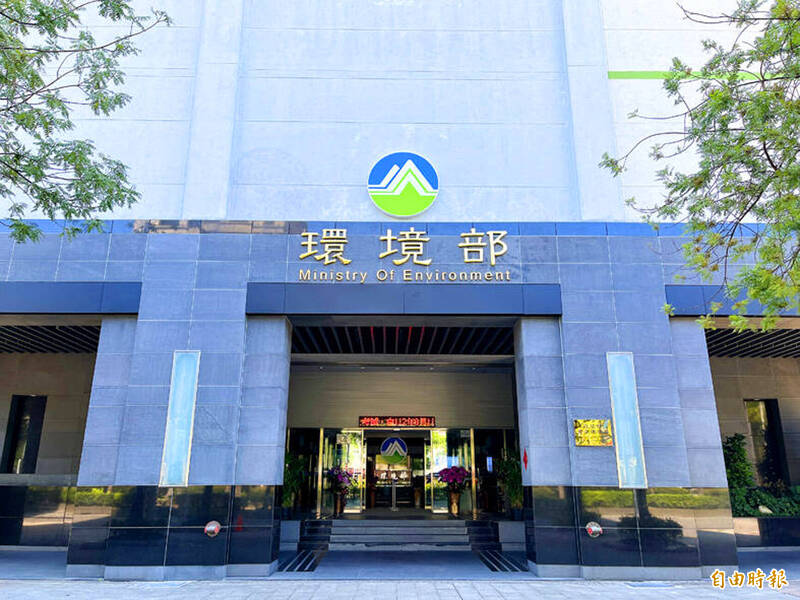《TAIPEI TIMES》 Ministry to start a trial ban on free plastic bags

The entrance to the Ministry of Environment in Taipei is pictured in an undated photograph. Photo: Chen Chia-yi, Taipei Times
ECO-FRIENDLY: Ningxia Night Market has already been replacing disposable tableware with reusable ones, so the ministry expects people to be more accepting of the ban
By Chen Chia-yi / Staff reporter
The Ministry of Environment said that it is planning to charge for plastic bags at 40 night markets and traditional markets starting in July, and Taipei’s Ningxia Night Market (寧夏夜市) might be designated as the first market for the trial
Taiwan is known for its night markets, which are filled with various street foods. However, a considerable amount of single-use plastic bags are also given out in the markets.
The government in 2002 began introducing measures to reduce the use of plastic bags. It expanded the free plastic bag ban to 14 types of businesses, including government agencies, convenience stores, pharmacies, beverage stores and bakeries in 2018.
The annual usage of plastic bags has been reduced by about 50 percent in two decades, from about 20 billion bags to about 10 billion bags per year, the ministry’s data showed.
The ministry is planning to designate at least one market in each city or county as a “no free plastic bag” market, with a total of 40 designated markets across the nation, said Lee Yi-hua (李宜樺), an official from the Ministry of Environment’s Resource Circulation Administration.
Vendors in designated markets would not be allowed to offer free plastic bags, but the ban does not apply to plastic bags containing food, Lee said.
The trial is expected to start in July and to run through the end of the year, with respective local environmental protection departments choosing the markets for the demonstration, he added.
“The trial market in Taipei is likely to be Ningxia Night Market,” Lee said.
Ningxia Night Market has been working toward becoming eco-friendly by replacing disposable tableware with reusable ones, so its vendors and customers should be more accepting of the plastic bag ban, Lee added.
However, vendors at Ningxia Night Market have polarized reactions to the possible policy.
Some vendors said that they sometimes have customers who bring their own reusable food containers when buying food, as well as foreign customers who ask if they need to pay for plastic bags, showing a high acceptance of plastic reduction measures.
Meanwhile, others said that the policy would only cause extra trouble for vendors and customers.
It would be difficult to ban free plastic bags at traditional markets, as meat and seafood products cannot be put into a big reusable bag like fruits and vegetables, and some products need to be separated by plastic bags to keep them fresh, a traditional market vendor said when asked to comment on the policy.
Another vendor said they would feel embarrassed to ask customers to pay NT$1 or NT$2 for a plastic bag.
As for customers, a woman surnamed Chang (張) said that she believes the policy would encourage more people to bring reusable shopping bags.
Meanwhile, a customer surnamed Chen (陳) said they wonder whether the policy would be effective in reducing plastic waste.
If consumers do not change their habits, the amount of plastic waste would not decrease, the only change would be that people would need to pay for plastic bags, Chen said.
新聞來源:TAIPEI TIMES

















